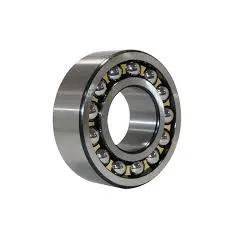
تشرینی دووەم . 12, 2024 20:22 Back to list
bearing testing machine
Bearing Testing Machine An Essential Tool for Quality Assurance
In the world of mechanical engineering, bearings play a crucial role in the efficient operation of machinery. They reduce friction between moving parts, thereby improving performance and longevity. The reliability of bearings directly impacts the safety, function, and overall lifespan of machinery. To ensure that these critical components perform as expected, bearing testing machines have become indispensable in the manufacturing and quality assurance processes.
A bearing testing machine is specifically designed to evaluate various performance characteristics of bearings, including their load capacity, endurance, and frictional resistance. By simulating real-world conditions, these machines help manufacturers assess the quality and reliability of their products before they are released into the market. This article delves into the importance of bearing testing machines, their functions, and the methodologies used in the testing process.
Importance of Bearing Testing
The significance of testing bearings cannot be overstated. Bearings are subject to a range of operational stresses, including radial loads, axial loads, and rotational speeds. Any failure in their performance can lead to catastrophic consequences, such as equipment malfunction, production downtime, and even safety hazards. Industries such as automotive, aerospace, and heavy machinery require bearings that can withstand harsh environments and extreme conditions. Therefore, rigorous testing ensures that only the best quality bearings are utilized in these applications.
Implementing thorough testing protocols can help manufacturers identify weaknesses in their design or materials. This proactive approach not only enhances product quality but also increases customer trust and satisfaction. A company that prioritizes reliable bearing products can differentiate itself from competitors and establish a solid reputation in the market.
Functions of a Bearing Testing Machine
A typical bearing testing machine is equipped with advanced technology to measure several parameters
1. Load Testing This involves subjecting the bearing to various loads to determine its load capacity and endurance. The machine applies pressure while monitoring deformations and any signs of failure.
2. Rotational Speed Testing Bearings need to function effectively under different speeds. Testing machines often enable engineers to simulate various RPM (revolutions per minute) to evaluate performance at high and low speeds.
3. Friction Measurement Understanding how much friction a bearing generates under load is crucial for efficiency. Testing machines measure frictional forces to ensure that the bearings reduce energy consumption effectively.
bearing testing machine

4. Temperature Testing Bearings can generate heat during operation. A testing machine can monitor temperature changes to ensure that bearings can handle thermal stress without significant wear or failure.
5. Endurance Testing Long-term performance is critical. Testing machines can run bearings continuously for extended periods to observe failure points and the overall durability of the product.
Methodologies Utilized in Bearing Testing
Different methodologies are employed in the bearing testing process to gather data and insights. Some of the most common methods include
- Static Testing This method assesses the mechanical properties of the bearing when it is not in motion, establishing baseline measurements for load resistance and structural integrity.
- Dynamic Testing In this approach, bearings are subjected to motion while under load. This simulates real-life conditions and reveals performance under operational stresses.
- Life Cycle Testing This methodology evaluates how a bearing performs over a specified number of cycles, helping predict its lifespan and maintenance intervals.
- Vibration Analysis This technique uses sensors to monitor vibrations during operation, identifying potential anomalies that could indicate wear or impending failure.
Conclusion
In conclusion, bearing testing machines are vital for ensuring the quality and reliability of bearings in machinery. They play an essential role in the manufacturing process by identifying weaknesses and verifying performance under operational conditions. As industries continue to advance toward higher efficiency and safety standards, investing in sophisticated bearing testing machines becomes increasingly critical. The integration of advanced technology in these systems not only enhances the testing accuracy but also significantly contributes to the development of high-quality bearings that meet the demanding requirements of modern engineering. By prioritizing proper testing, manufacturers can ensure that their products consistently perform at the highest levels, securing a competitive edge in the marketplace.
Latest news
-
Grooved Ball Bearing Design and Functionality
NewsJun.04,2025
-
Concrete Mixer Bearing Load Capacity Testing
NewsJun.04,2025
-
6004 Bearing Dimensions in Robotic Joint Designs
NewsJun.04,2025
-
Advantages of Single-Row Deep Groove Ball Bearings
NewsJun.04,2025
-
Applications of Deep Groove Ball Bearings in Automotive Systems
NewsJun.04,2025
-
Innovations in Bearing Pressing Machine Design
NewsJun.04,2025
